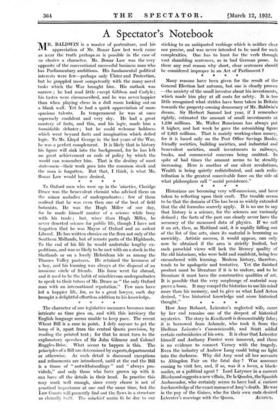The character of our legislatiVe measure's becomes More intricate as
_ time goes on, and with this intricacy the English language seems unable to keep pace. The recent Wheat Bill is a case in point.. I defy anyone to get the hang of it, apart from the central Quota provision, by reading the printed text ; for that he must turn to the explanatory speeches of Sir John Gilmour and Colonel Ruggles-Brise. What seems to happen is this. The principles of a Bill are determined by experts,departmental or otherwise. As each detail is discussed exceptions and refinements are introduced, until at the end the Bill is a tissue of " aotwithstandings " and " always pro- videds," and only those who have grown up with it can haVe all the details. in their head. In practice this may work well enough, since every clause is not of practical importance at one and the same time, but the Law Courts will presently find out the flaws in a structure so clumsily built. The mischief seeina t'b be due to our sticking to an antiquated verbiage which is neither clear nor precise, and was never intended to be used for such complexities. One has to hunt for the verb through vast shambling sentences, as in bad German prose. Is there any real reason why short, clear sentences should be considered improper in an Act of Parliament ? * * * * • ,


















































 Previous page
Previous page